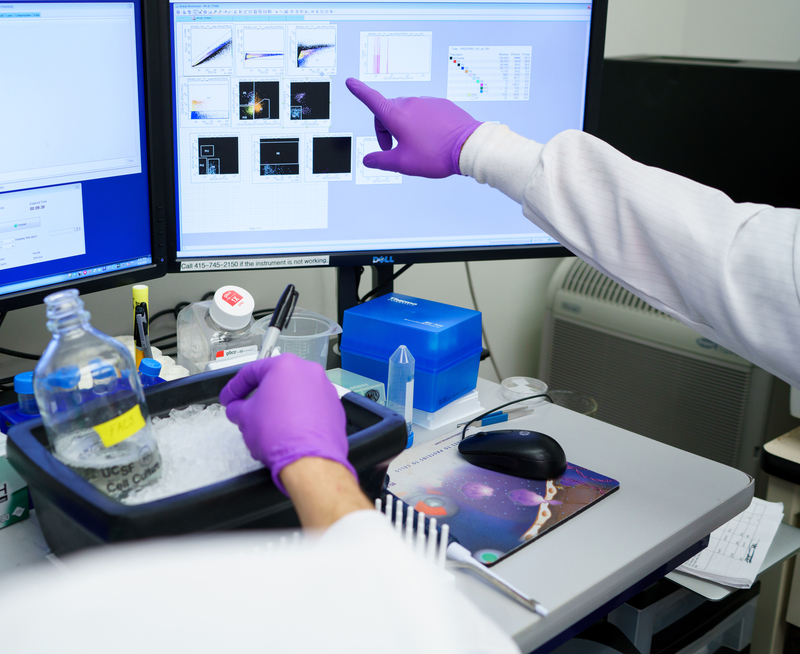
Immune-Oncology Program for Acute and Chronic Toxicities (IMPACT)
The mission of the UCSF Immuno-oncology Program for Acute and Chronic Toxicities (IMPACT) is to give healthcare providers, patients, and their families access to world-class multi-disciplinary expertise in the management of immunotherapy-related toxicities.
The IMPACT Program brings together clinical researchers and scientists at UCSF and beyond to understand immunotherapy and the mechanisms of action behind immune-related toxicities, with the goal of developing better management and prevention strategies.
The immune system is designed to protect the human body from various dangers, including infections and cancers. Just as the immune system plays an important role in recognizing and attacking various bacteria and viruses, it also has the ability to recognize and attack cancerous cells. Sometimes, cancer cells learn how to “hide” from the immune system and thus escape immune detection and destruction. Over the past several decades, researchers have identified many of the ways in which cancer cells are able to hide from the immune system, thus creating a novel category of cancer treatment – immunotherapy – that has revolutionized our approach to treatment for cancer patients.
Unlike traditional chemotherapy, immunotherapy agents do not directly kill cancer cells. Rather, immunotherapy works to “boost” a person’s immune system so that their own cells are “retrained” to fight cancer. Because immunotherapy works in a very different way from chemotherapy, side effects from immunotherapy are also very different from those we expect from chemotherapy. Immunotherapy-related side effects usually appear as inflammatory, auto-immune-like conditions, and can appear shortly after treatment start, within the first few months, or even after treatment is finished. Effective management of these side effects depends on early recognition and timely intervention by health care providers who are experienced in the use of immunotherapy.